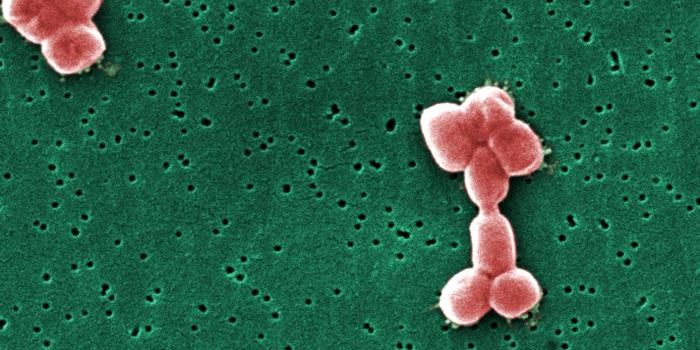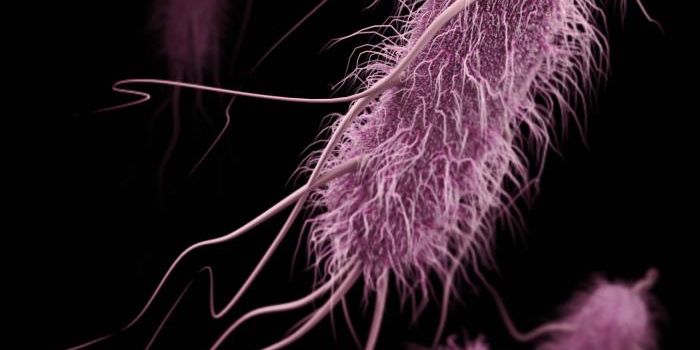Sepsis and bacterial meningitis are life-threatening diseases caused by meningococci bacteria. Researchers have now learned more about a protein produced by the microbial pathogen, called ProQ. This protein can bind to RNA, and impact the expression of over 250 bacterial genes. ProQ helps make bacteria resist the effects of oxidative stress, and can help the bacteria repair damaged DNA, characteristics that both amplify the pathogenicity of the microbe. The findings have been reported in Nature Communications.
"We were surprised that a comparatively small protein can have such a great influence on bacterial gene regulation," said the co-corresponding study author Christoph Schoen, a professor at the Institute of Hygiene and Microbiology at Julius-Maximilians-Universität (JMU) Würzburg in Bavaria, Germany.
ProQ is a relatively small protein made up of around 120 amino acids, and is a member of a group of proteins that can bind to RNA (many proteins are up of thousands of amino acids). RNA molecules can serve several functions. Typically, they are processed transcripts of genetic sequences, which cellular machinery can translate into protein. RNA can also act as a regulator of genetic activity, and can work with binding proteins.
"In meningococci, the protein interacts with almost 200 different RNA molecules. It binds to structured regions of the RNA and thus stabilizes its binding partners," said co-corresponding study author Jörg Vogel, director of the Helmholtz Institute for RNA-based Infection Research (HIRI) and head of the JMU Institute for Molecular Infection Biology.
These RNA-binding molecules and the pathways they affect could be a new target for antibacterial drugs. The researchers are working towards that goal.
"We hope to be able to disrupt the binding proteins in their function with small molecules and hence weaken the pathogens," explained Vogel.
There are still many unanswered questions about RNA-binding proteins in meningococci bacteria; maybe have not been identified yet. This could mean that many meningococci RNAs don't use them. The scientists also want to know more about the processes that are controlled by these proteins.
"This is what we would like to find out - and meningococci are particularly well suited for this task because of their relatively small genome," said Schoen. "Our goal is to systematically identify the entire family of RNA-binding proteins in meningococci using established high-throughput methods."
Sources: AAAS/Eurekalert! via University of Würzburg, Nature Communications









